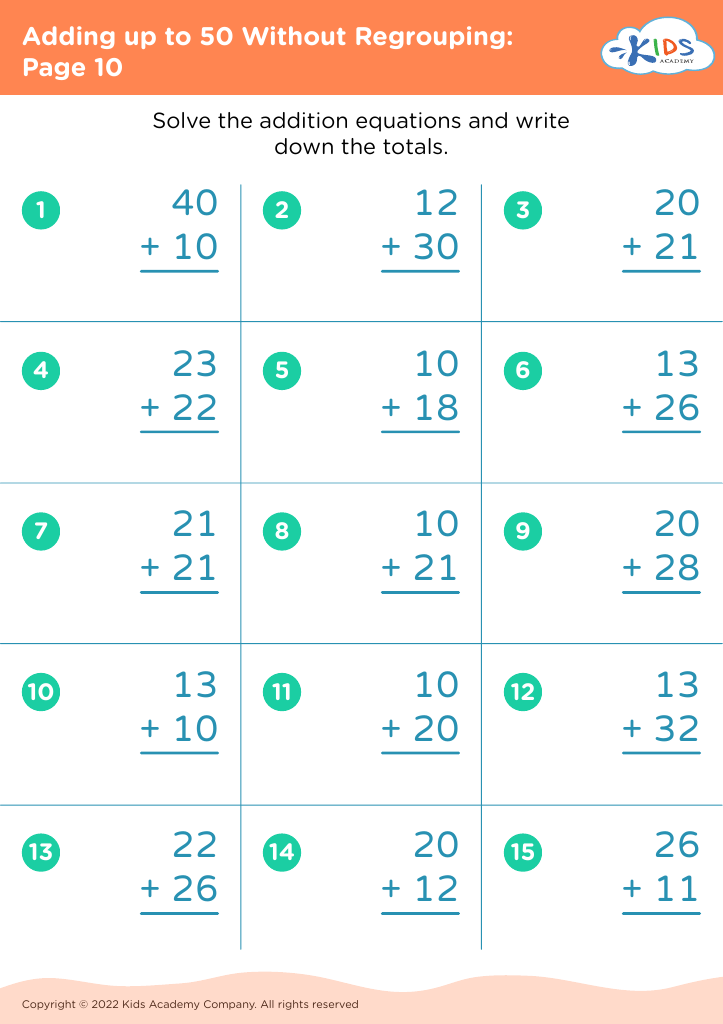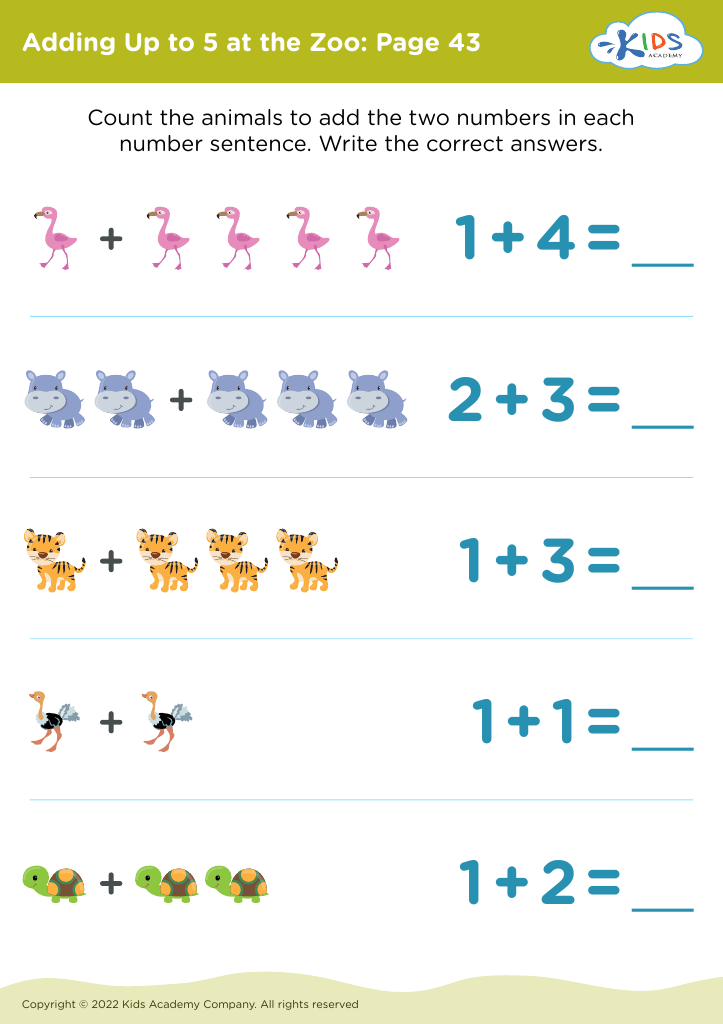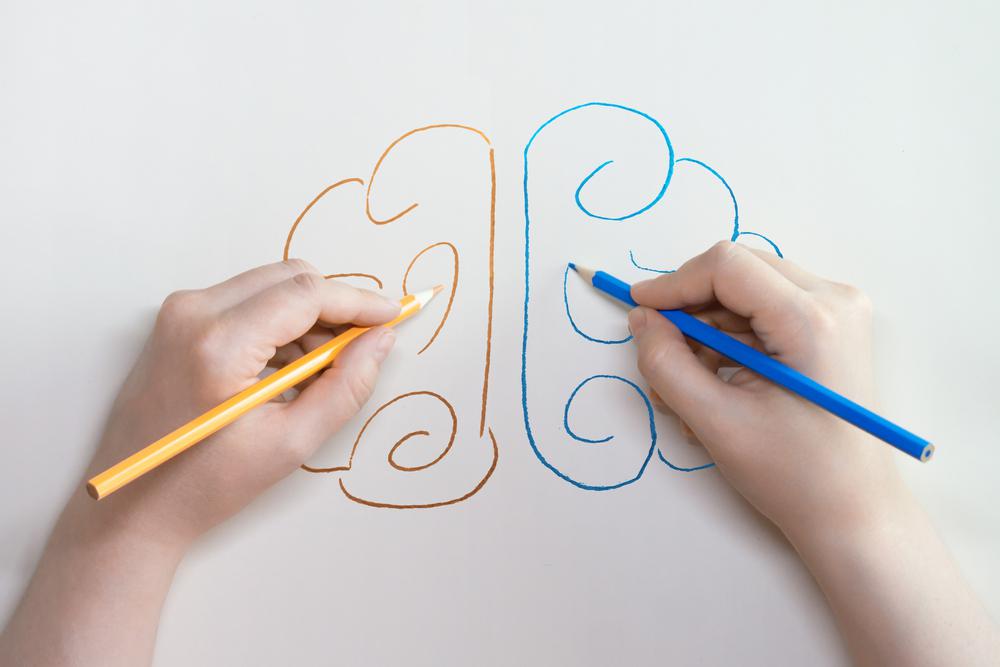Mathematical thinking Worksheets for Ages 5-8
7 filtered results
-
From - To
Unlock your child's potential with our "Mathematical Thinking Worksheets for Ages 5-8." Designed to foster critical thinking and problem-solving skills, these printable worksheets cover key concepts in a fun and engaging way. Explore patterns, measurements, shapes, and basic arithmetic to build a solid math foundation. With creative exercises and challenges, your young learner will develop confidence and a love for math. Ideal for both classroom and home use, these resources are perfect for making learning exciting and effective. Elevate your child's mathematical abilities with activities that encourage exploration, reasoning, and discovery. Dive into math fun today!
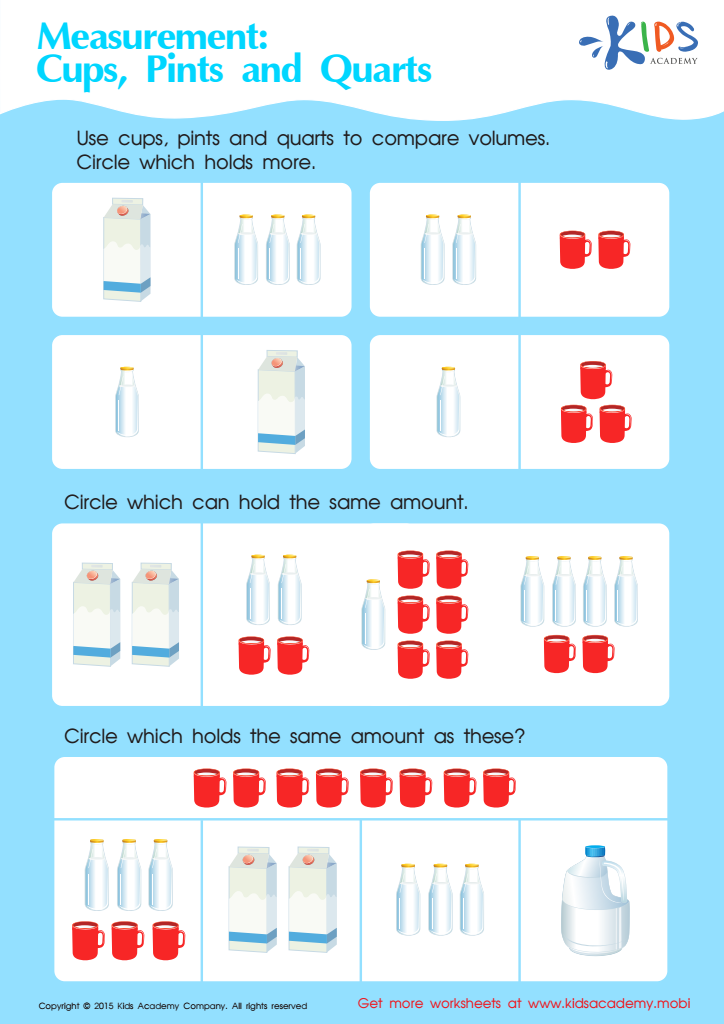

Measurement: Compare Volumes Worksheet
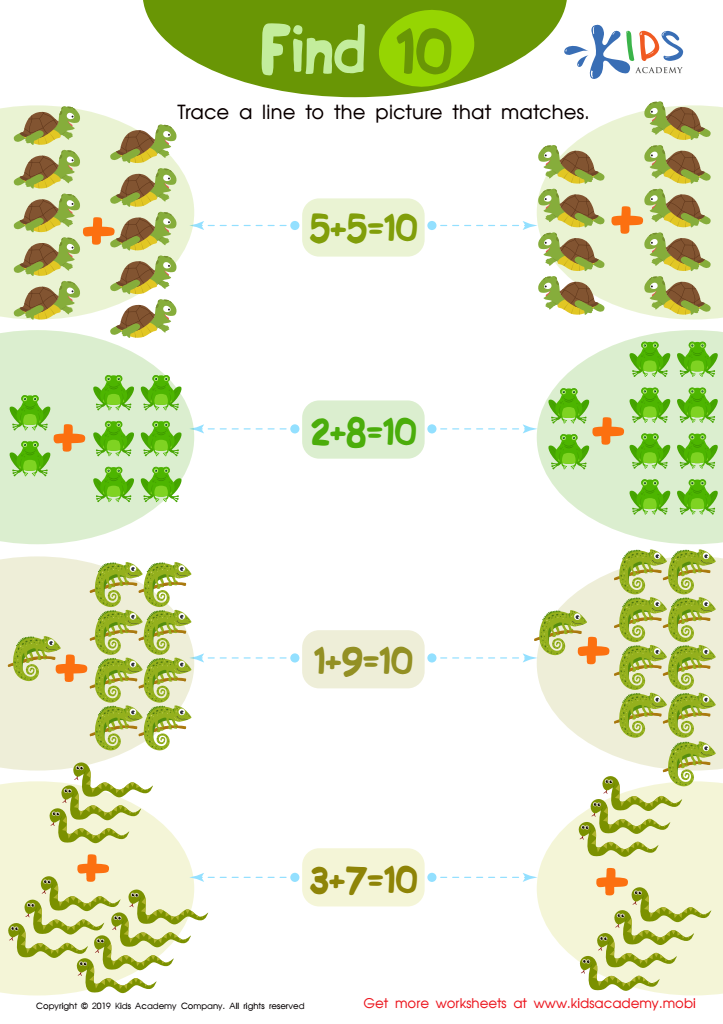

Find 10 Worksheet
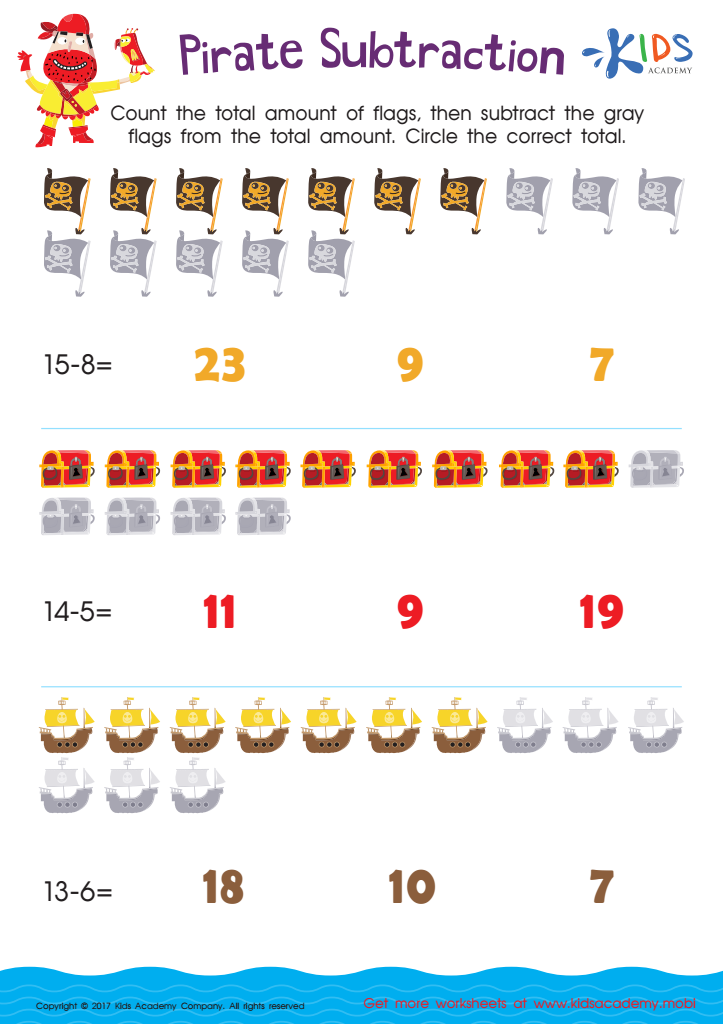

Pirate Subtraction Substraction Worksheet
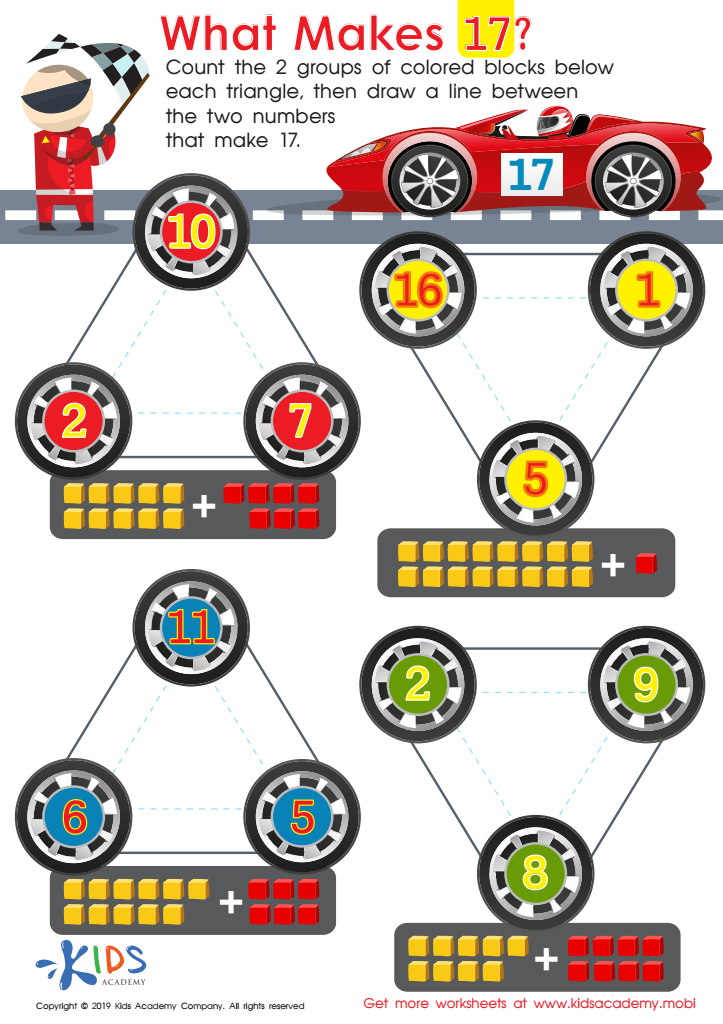

What Makes 17 Worksheet
Mathematical thinking is critical for children aged 5-8 for several important reasons, and both parents and teachers play vital roles in fostering it. First, early exposure to mathematical concepts builds a strong foundation for future learning. During these formative years, children’s brains are highly adaptable, making this an ideal time to develop problem-solving skills and logical thinking.
Understanding basic math principles helps children navigate everyday life, boosting their confidence and independence. Simple activities like counting objects, recognizing shapes, and understanding patterns are not only foundational for advanced math learning but also for various other subjects and life skills. For instance, pattern recognition enhances a child's ability to predict outcomes and understand sequences, which are crucial in reading and science.
Additionally, a positive early experience with math can encourage a lifetime interest in the subject. When kids see math as fun and relevant, they are more likely to embrace it later on. Moreover, mathematics promotes perseverance; solving complex problems shows children the value of not giving up even when faced with challenges.
Lastly, early math skills are strong predictors of academic success in later years. By fostering mathematical thinking early on, parents and teachers help children build critical thinking skills, setting them up for achievement across the curriculum and in real-world contexts.

 Assign to My Students
Assign to My Students

